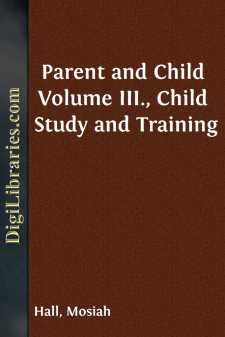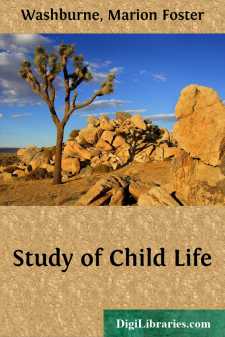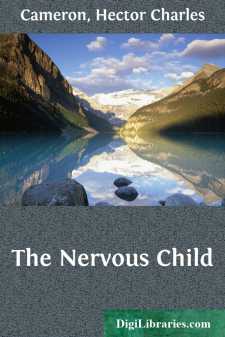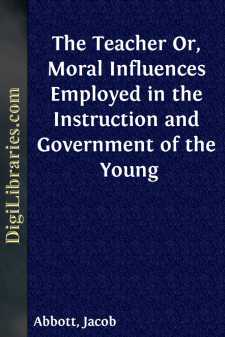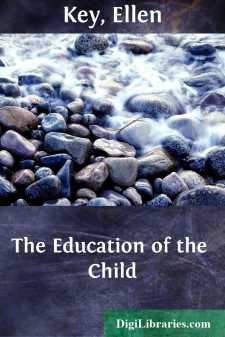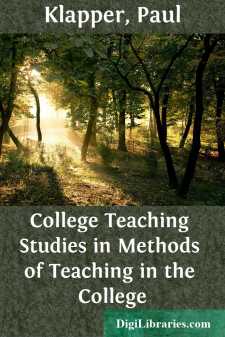Categories
- Antiques & Collectibles 13
- Architecture 36
- Art 48
- Bibles 22
- Biography & Autobiography 813
- Body, Mind & Spirit 142
- Business & Economics 28
- Children's Books 17
- Children's Fiction 14
- Computers 4
- Cooking 94
- Crafts & Hobbies 4
- Drama 346
- Education 46
- Family & Relationships 57
- Fiction 11829
- Games 19
- Gardening 17
- Health & Fitness 34
- History 1377
- House & Home 1
- Humor 147
- Juvenile Fiction 1873
- Juvenile Nonfiction 202
- Language Arts & Disciplines 88
- Law 16
- Literary Collections 686
- Literary Criticism 179
- Mathematics 13
- Medical 41
- Music 40
- Nature 179
- Non-Classifiable 1768
- Performing Arts 7
- Periodicals 1453
- Philosophy 64
- Photography 2
- Poetry 896
- Political Science 203
- Psychology 42
- Reference 154
- Religion 513
- Science 126
- Self-Help 84
- Social Science 81
- Sports & Recreation 34
- Study Aids 3
- Technology & Engineering 59
- Transportation 23
- Travel 463
- True Crime 29
Parent and Child Volume III., Child Study and Training
by: Mosiah Hall
Description:
Excerpt
THE BIRTHRIGHT OF CHILDHOOD
It Is the Sacred Right of the Child To Be Well-Born
If the child has any divine right in this world, it is the right to be well-born, to be brought into the world sound of body and whole in mind. To be given anything short of such a good beginning is to be handicapped throughout life. Education and training cannot make up for the defects imposed on the child by the sins of the fathers, which, the Good Book tells us, are visited upon the children unto the third and fourth generation.
It is a fact to challenge attention that the child is the product of the entire past. His essential nature is comparatively fixed at birth and is beyond the power or caprice of parent or environment to change in any fundamental particular during the short period of a lifetime. This assertion must not be wrongly interpreted; the possibilities of training and education are great, but they can do little to overcome all of the defects placed upon the child by heredity.
Science tells us that normal children are born with the same number and kind of instincts. By instinct is meant the tendency to do certain things in a definite way without previous experience. In all children, for example, we find the instinct of fear, the instinct for play, for self-preservation. These instincts begin to manifest themselves more or less strongly as the child develops.
Children also have certain capacities. Capacity may be defined as the possibility to develop skill in certain directions. One, for instance, may have a greater capacity to develop musical ability than another; so with art or business, or ability for any other work. Capacities, more than instincts, seem to depend on the characteristics of parents or immediate ancestors. Thus a child may take after father or mother, or grandparent in this or that particular ability. Instincts, on the other hand, seem to be his inheritance from the race. But whatever his gifts from parent or past the child is born a distinct individual. This is true not only with regard to his physical organism but in respect to his spiritual nature. The relative strength of his instincts, added to the number and quality of his capacities determine what is called individuality. This is what makes each child differ from all others, and this distinctive nature cannot be essentially changed, within our brief lives, though it does possess marvelous powers of development and adaptation. For illustration: Cultivation may develop a perfect specimen of a crabapple, but no amount of careful training could change the crabapple into a Johnathan. Likewise, no system of education can hope to change a numskull into a Newton, or to produce a Solomon from a Simple Simon.
The first vital concern of parents, therefore, should be to see that the child is not robbed of his sacred birthright to be well-born.
It is a matter of regret that the white race generally is such a sorry mixture of humanity. The good and the bad, the intelligent and the ignorant, the feeble-minded and the strong, the criminal and the righteous, have been combined so frequently and in so many ways that the marvel is that more of the human race are not degenerate as the result of contamination....


